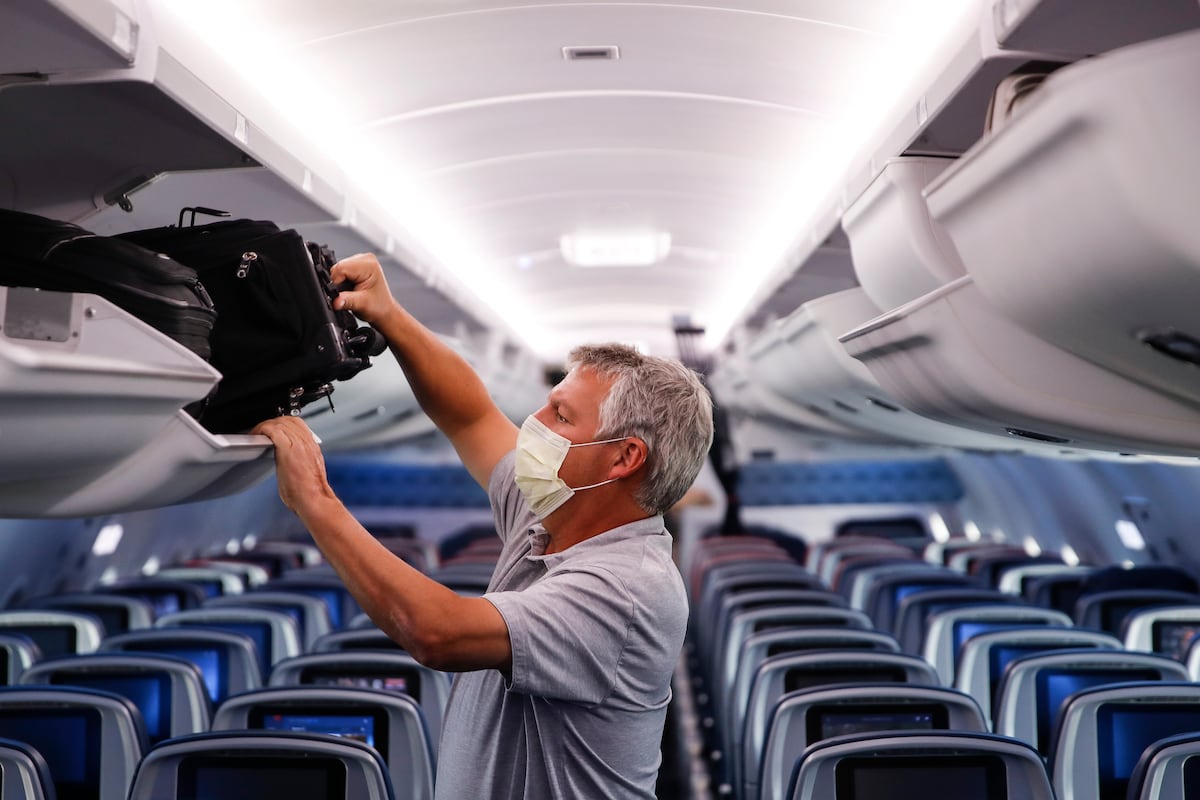The mask is still one of the best ways to protect against the transmission of covid-19, but its use will no longer be mandatory at airports and on board flights in several European countries.
Putting on the mask will become an individual decision, according to the latest recommendation published by the European Union Aviation Safety Agency (EASA) and the European Center for Disease Prevention and Control (ECDC).
The update to your air travel safety advice will be effective from May 16, but for some airlines there will be no change yet.
Masks will continue to be required on flights to or from countries where they are mandatory on public transport.
These two organizations, whose guidelines are not binding but are usually taken into account, consider that the latest advances in the fight against the pandemic allow air travel to return to normal.
In a joint statement they highlight the high levels of vaccination and the naturally acquired immunity after more than two years of the pandemic.
About 80% of Europeans are vaccinated and 52% already have the third dose, according to data from the ECDC.
The lifting of restrictions in more and more European countries is another reason they give for recommending the end of masks.
His decision is just that, a recommendation.
In fact, the agencies insist that face masks will continue to be mandatory on flights that take off or land in destinations where they are used on public transport.
The final decision is therefore left to the discretion of each country.
Governments could decide to include an exception for flights in their regulations.
Airlines must inform passengers of the rules that apply to each flight.
Iberia assures that it is awaiting instructions from the Spanish authorities to see if it continues to require the mask on its flights.
The Spanish Aviation Safety Agency (AESA) points out that, for now, it is still necessary in compliance with Spanish regulations.
A royal decree from last April imposes it on public transport - which includes planes -, health services, residences and pharmacies.
The German company Lufthansa also ensures that the Infection Law currently in force in the country governs its flights, according to which it is necessary to wear a face mask on public transport.
"Other airlines in the group such as Swiss and Brussels Airlines no longer have that obligation because the legislation in Switzerland and Belgium is different," a company spokesperson told EL PAÍS.
"We believe that the wearing of masks on planes in Germany should be abolished," he adds.
Lufthansa believes that now is the time to rely on volunteerism "as is already the case in other areas of daily life, such as supermarkets or restaurants."
As an argument in favor, he points to the use of highly efficient air filters in aircraft cabins.
The recommendation comes on the same day that France has announced that the mask is no longer mandatory on public transport.
This means that, as is the case with other countries such as Switzerland, the United Kingdom or Norway, their airlines will not require the mask on their flights either.
The new provision comes into force next Monday the 16th.
The ECDC recommends that vulnerable passengers continue to wear a mask, regardless of the rules, "ideally" an FFP2, which offers a higher level of protection than a surgical one.
“For passengers and air crews, this is a huge step forward in normalizing air travel.
However, passengers must behave responsibly and respect the choices of others.
And a passenger who is coughing and sneezing should seriously consider wearing a mask, for the peace of mind of those sitting nearby," EASA Executive Director Patrick Ky said in a statement.
distancing measures
Agencies continue to advise passengers to observe distancing measures indoors, including at the airport, whenever possible.
But airport operators "should take a pragmatic approach to this," say these two authorities, who give an example: they should avoid imposing distancing requirements if they are likely to lead to a bottleneck at the airport, boarding or disembarking. .
“Although the risks remain, we have seen that non-pharmaceutical interventions and vaccines have allowed our lives to begin to return to normal.
Although the mandatory use of masks in all situations is no longer recommended, it is important to note that, along with physical distancing and good hand hygiene, it is one of the best methods to reduce transmission, "said the director. of the ECDC, Andrea Ammon, who stressed that the rules and requirements of the countries of departure and destination of the flights will be respected.
The agencies recommend that airlines maintain their passenger data collection systems, despite the fact that most countries no longer ask to fill out forms with information about where they are going to reside at the destination.
They want this data to be available to public health authorities in case new variants emerge in the future and it is necessary to re-monitor travelers.

